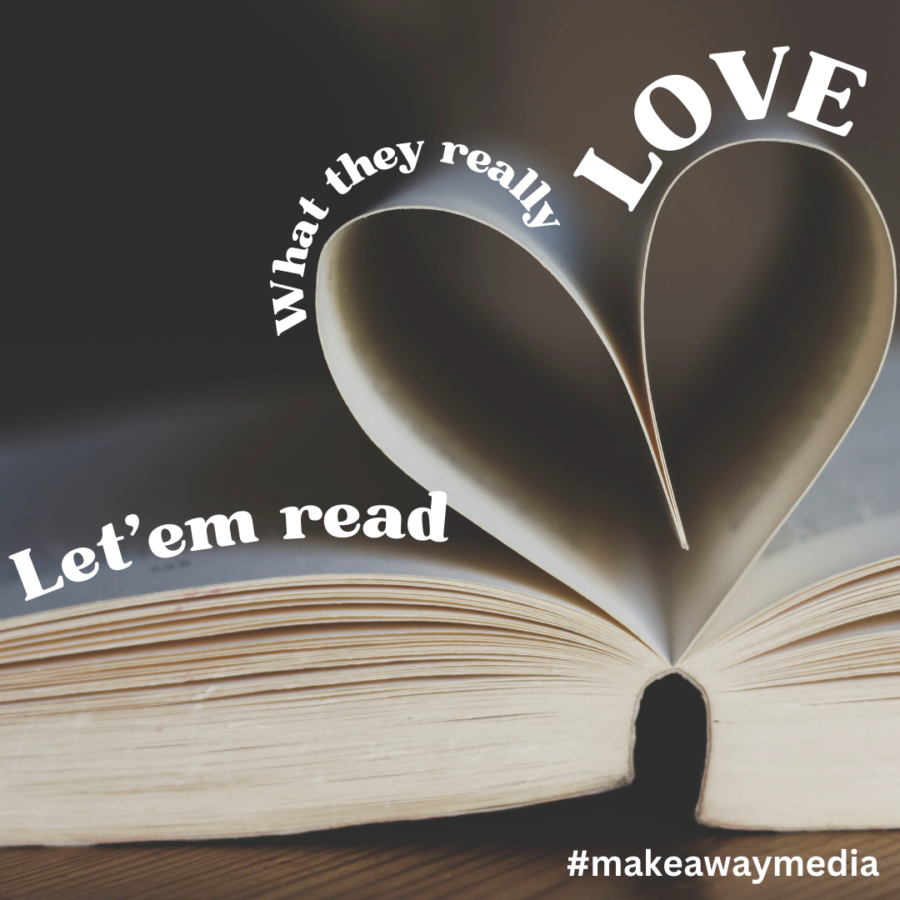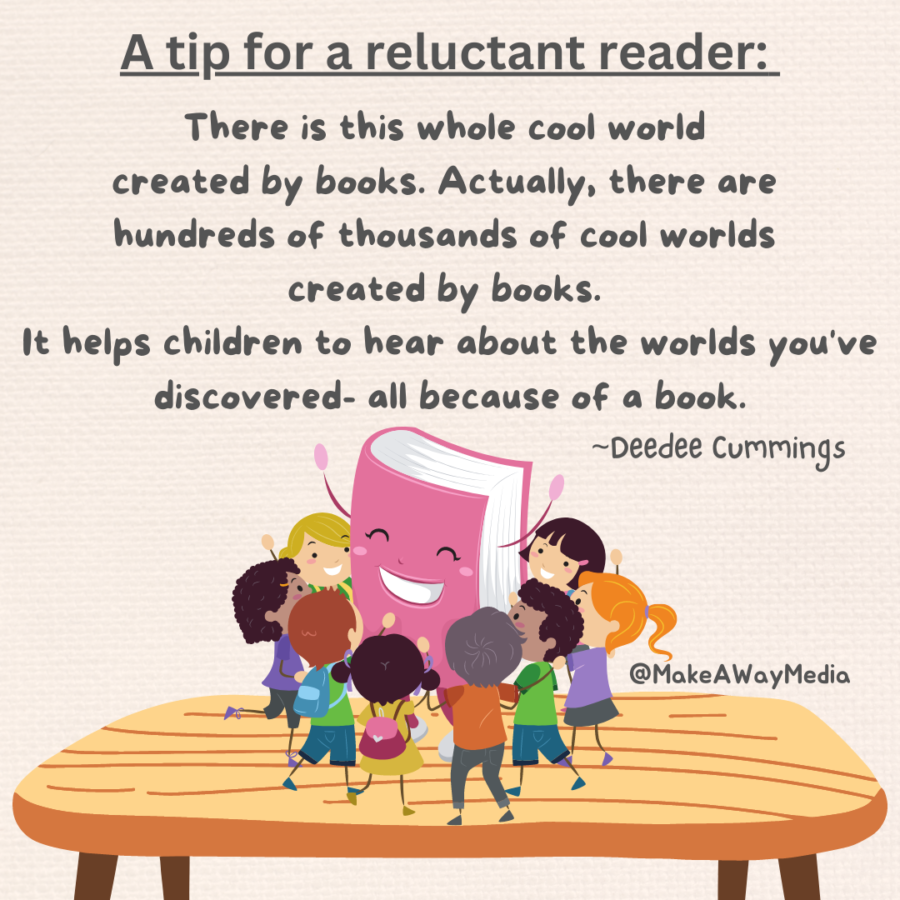There are many, many simple ways to help make reading something your kids enjoy, but it isn’t at all uncommon for kids to not read as much in middle and high school. If you are a big reader, you may feel like you’ve failed in some way if your child doesn’t love reading in the way that you do.
When kids are in preschool and elementary age, the easiest ways to encourage a love of reading are the following:
1–Immerse them in books. Take them to the library. Buy them books. Ask family members to gift books to your child for birthdays and holidays. And do things that are book related that might peak their interest to read the rest of the story.
2–Read to them at every opportunity. It can be easier to hand them a device, but a device doesn’t build their fond memories of spending time with a parent reading, nor does it activate their ability to learn language the way listening to a human voice does. Taking the time to read to them shows them that you value them and you value reading.
3–Model reading by letting them see you in the act of reading. I once saw a cartoon on this very subject. Two parents were sitting on a bench- one on a tablet and one reading a book. Their two kids were in front of them- one on a tablet one reading a book. The parent on the tablet said to the parent reading the book, “How do you get them to read?” The answer: modeling. Nothing beats it. If you spend every evening watching television, including while winding down before bed, your child is not going to want to do anything but the same. Our kids watch what we do and listen to what we say, and they want to see our actions match our words.
4-Talk about books. There is this whole cool world created by books. Actually, there are hundreds of thousands of cool worlds created by books. It helps children to hear what worlds you’ve discovered- all because of a book.
5-Let them pick their own books whenever possible. There are some books that kids have to read. But there are many that they can choose for themselves. The more they read what they want. The easier time they will have getting through the books that are assigned to them.
 As children get older and become more involved in activities, reading can take a backseat to other things like sports or video games. Preteens and teenagers also develop their own unique likes and dislikes related to reading, and parents might be tempted to steer them in a direction the parent likes, but the child isn’t keen on. For example, graphic novels are extremely popular among young readers, but sometimes parents don’t consider those as valuable as books with longer chapters. Children do read longer books in school so in an effort to encourage the joy of reading, it might be worth it to let a child self-select books, even if they don’t seem like “worthy” titles to a parent. (One of many “pick your battle” opportunities for parents.)
As children get older and become more involved in activities, reading can take a backseat to other things like sports or video games. Preteens and teenagers also develop their own unique likes and dislikes related to reading, and parents might be tempted to steer them in a direction the parent likes, but the child isn’t keen on. For example, graphic novels are extremely popular among young readers, but sometimes parents don’t consider those as valuable as books with longer chapters. Children do read longer books in school so in an effort to encourage the joy of reading, it might be worth it to let a child self-select books, even if they don’t seem like “worthy” titles to a parent. (One of many “pick your battle” opportunities for parents.)
It is also important for parents and family to still gift books to preteens, teens, and young adults, especially books on a topic they’re interested in. Maybe your teenager doesn’t love to read, but they LOVE to cook. Buy them a cookbook or a biography of a chef, such as Notes from a Young Black Chef by Kwame Onwuachi or a book by Anthony Bourdain. They may be willing to read a book if it is about something they are passionate about. Buying them a book shows them that you still value reading, but you also value and appreciate their interests.



